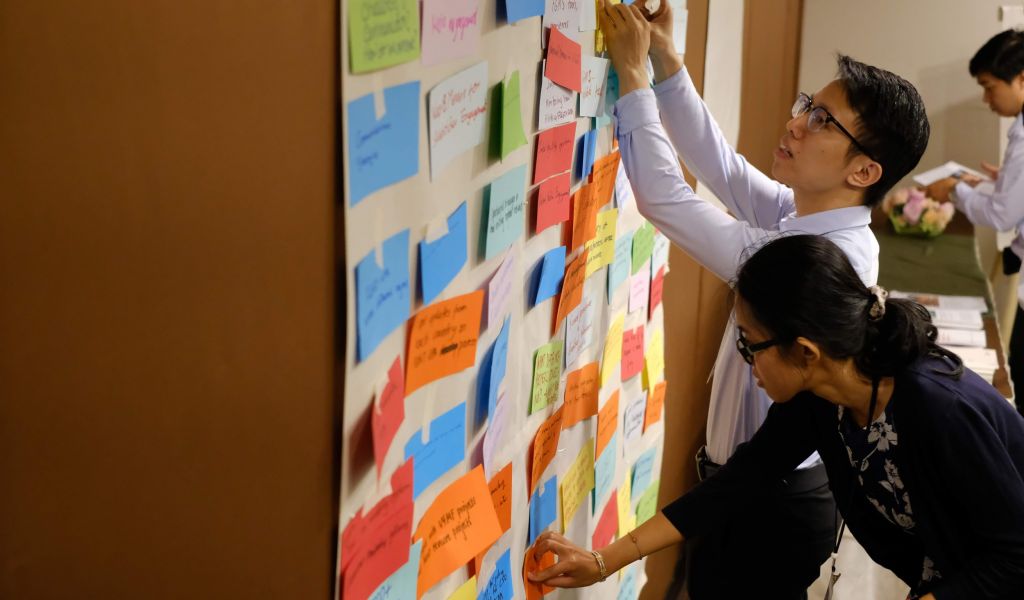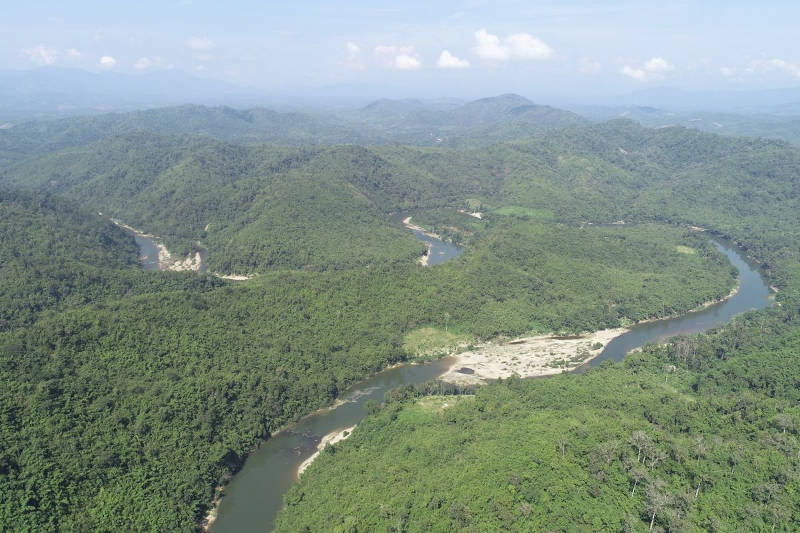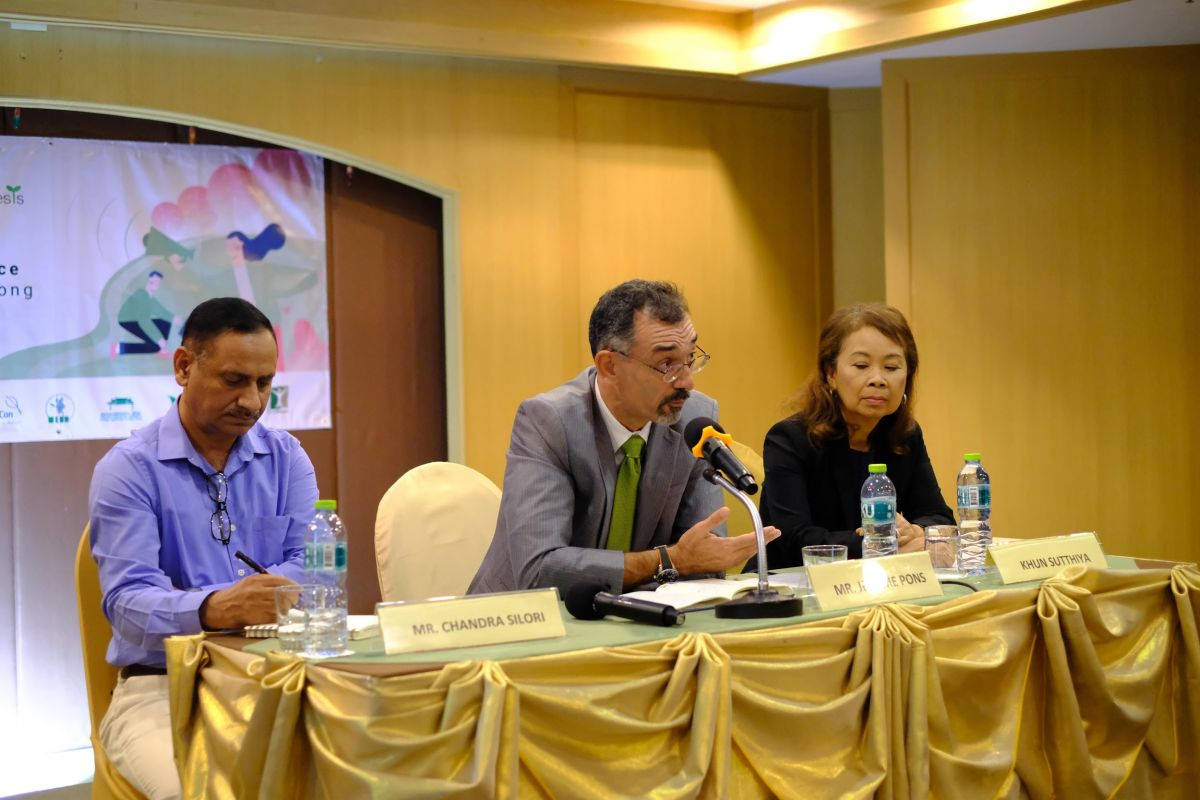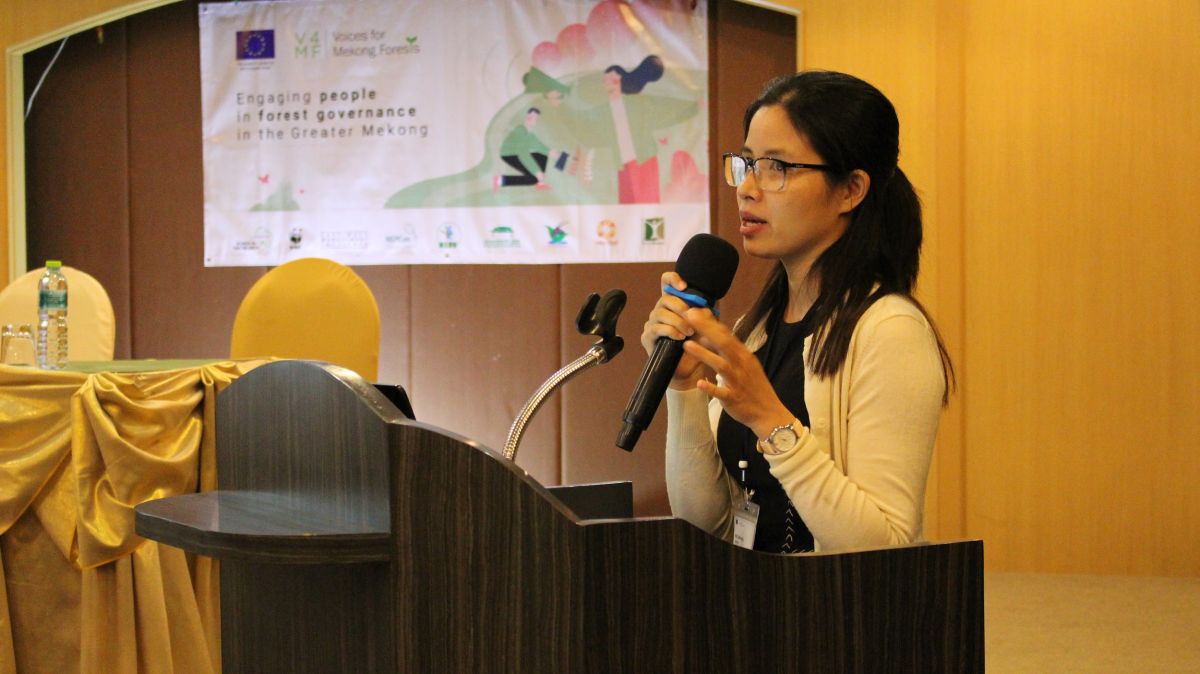Tucked away in the highlands of Hà Giang, the small…

Knowledge fair highlights challenges and solutions to civil society engagement in forest governance in the Mekong region
Participants emphasize gender equality and social inclusion in forest governance processes, access to information and communication skills.

Civil society organizations from five countries shared their progress and lessons on improving forest governance in the Mekong region at a learning fair organized by RECOFTC in Bangkok 23 to 25 September 2019. The event was hosted by the Voices for Mekong Forests (V4MF) project which is funded by the European Union.
“It is crucial to engage civil society to improve forest governance in the Mekong region, fight deforestation and ensure that benefits from the forest are shared by forest communities,” said Robin aus der Beek, coordinator of the V4MF project. “The learning fair helped to catalyze cross-country collaboration and boost dialogue and exchange among the multitude of national and regional partners working on forest governance.”
Recent assessments indicate that Thailand is the only country in the region that has seen gains in forest cover over the past decade. In Cambodia, Lao PDR, Myanmar and Viet Nam forest cover is decreasing.

V4MF partners in these five Mekong countries and beyond are working to strengthen the capacity of local communities to participate effectively in forest governance processes. This is to ensure those who formulate policy, enforce laws, allocate resources and manage forests hear and consider the perspectives and knowledge of those who depend on forests.
Through initiatives such as the V4MF project, RECOFTC and its partners promote the sustainable management of the Mekong forests in two prominent lines of action: the Forest Law Enforcement, Governance and Trade (FLEGT) Action Plan and the Reducing Emissions from Deforestation and forest Degradation (REDD+) process.

Participants in the learning fair said women are not equitably engaged in forest governance in many Mekong countries, and called for renewed efforts to mainstream gender in forest governance processes and decision making.
Kalpana Giri, senior program officer at RECOFTC, believes that projects can address policy gaps and create change by linking the insights gained from gender assessments and research with project planning, implementation, and monitoring and evaluation.
“When we talk about gender mainstreaming in forest governance, we must unpack our assumptions of linear change and understand how project activities contribute to small and medium level gender results,” said Giri. “These results, in turn, contribute to higher level results. Change occurs through incremental steps of diversity, equity and influence.”
Participants called for improved data and information access, freedom of expression and respect for the principle of Free, Prior and Informed Consent. Many said they struggle to access accurate data and information through national and regional systems.
“We need to generate an environment and literacy within communities so they can demand this data,” said Pyrou Chung, Director at the Open Development Initiative (East West Management Institute, EWMI). “Large digital divides are not being addressed through technology advancements, which are leaving women, ethnic minorities and people with disabilities behind.”
Participants stressed the difficulties involved in communicating information about forest governance to the public.
“It is difficult to attract the attention of audiences to forest governance and environmental issues,” said To Thi Bich Ngoc, project communication officer at PanNature.

To solve these issues, PanNature, which works on conserving Viet Nam’s natural resources, and other organizations in the Mekong work with journalists and civil society organizations to build networks and strengthen their communication capacities.
“We want to be a media bridge between journalists, scientists, policy makers and policy analysts,” said Bich Ngoc. “We are supporting a core group of journalists who are interested in the topic of forest governance.”
The learning fair showed that a community of practice dedicated to forest governance is emerging in the Mekong region. These networks play an important role in overcoming challenges that civil society faces across the five project countries.
“As a result of the fair, we will take actions that are tailored to the context and needs of each country, while boosting learning exchanges among the Mekong countries” said Robin aus der Beek. “We will continue to strengthen the capacity of civil society to participate in forest governance processes and amplify the voices of those who are left out.”



